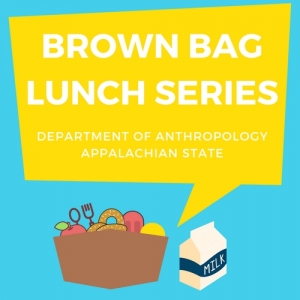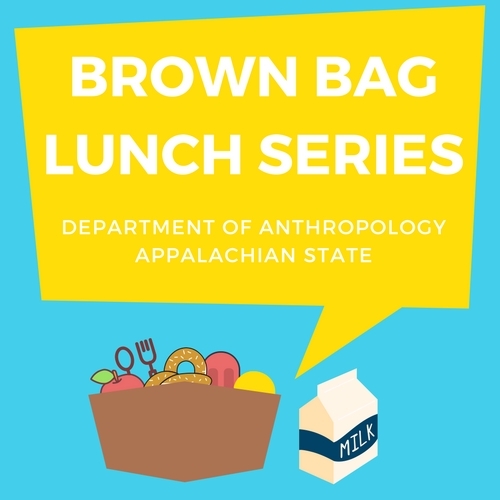Anthropology Brown Bag Series
"The Poiesis of Incoherence"
Wednesday, March 21, 2018 from 12 - 1 p.m.
Dr. Diana Mines, Professor, Department of Anthropology
Anne Belk Hall, Room 342
"Re-building a Homeland and Identity among Cultural and Ethnic Kin"
Wednesday, March 28, 2018 from 12 - 1 p.m.
Dr. Hulya Dogan, Lecturer, Department of Anthropology
Anne Belk Hall, Room 342
"What Winds Up in the Window Well"
Wednesday, April 18, 2018 from 12 - 1 p.m.
Dr. Thomas Whyte, Professor, Department of Anthropology
Anne Belk Hall, Room 342
These events are free and open to the public.
Wednesday, March 21, 2018
Dr. Diana Mines will recall and explore the incoherence of the infamous, Tavamani’s possession speech as a bringing-into-being of a temporal experience. The story takes place in the Alagar Mountain in Tamilnadu, south India. When a young man named Tavamani was asked why he wished to take on the project of recording oral histories, he told a story that differed markedly from the coherent history he had just dictated. His speech became incoherent, practically untranslatable. Was it Tavamani speaking or a god?
Mines’ lecture regarding the speech will explain how Tavamani’s (the god’s?) incoherent speech exemplifies the historical force of his lineage deities, material agencies generated out of death and violence that refuse to recede into the past but flash dynamically into the present.
Wednesday, March 28, 2018
Dr. Hulya Dogan will lecture on the widely dispersed, Meskhetian Turks. This unique group of Turkish-speaking Muslim people are originally from a region that used to be called Meskhetia, located in the southern part of Georgia bordering Turkey and Armenia. Today, due to several deportations and discriminations, Meskhetian Turks are scattered throughout the former Soviet Union nationalities, Turkey, Ukraine and the United States.
Dogan, through her incorporation of qualitative data collected through fieldwork in Turkey, will address the question of where home is for the group and whether Georgia still holds meaning as a homeland. The lecture will reveal the shifting meaning of “homeland” as the population resettles in a surrogate homeland, Turkey.
Wednesday, April 18
Dr. Thomas Whyte will hold a lecture, "What Winds Up in the Window Well: An Experimental Study of Toad Remains in Archaeological Contexts"
Whyte has been with Appalachian State University since 1989 and teaches Archaeology, Archaeology & the Human Past, Prehistory of the Southern Appalachians, Stone Age Stereotypes, Field Archaeology, Archaeological Laboratory Methods, and Zooarchaeology. His research interests are Southern Appalachian prehistory, Island and coastal adaptations, Zooarchaeology, and Zoogeography. He is known best for his study of fish remains from archaeological sites.
###
About Department of Anthropology
The Department of Anthropology advances, increases and disseminates the knowledge and practice of anthropology through instruction, research and writing. In keeping with the goals of Appalachian State University, we are committed to excellence in our undergraduate program (to our majors, as well as numerous non-majors who take our courses as part of a well-rounded liberal arts college education). To achieve these goals, we offer students of all disciplines the opportunity to strengthen and broaden their knowledge of humankind and of themselves. For those who may pursue a graduate degree in anthropology, we offer a rigorous preparation in content, theory, and methods. Finally, we acknowledge the academic and practical nature of a degree in anthropology which can prepare students who choose a wide range of professional careers, such as social services, public health and medicine, education, public service and archaeology.

